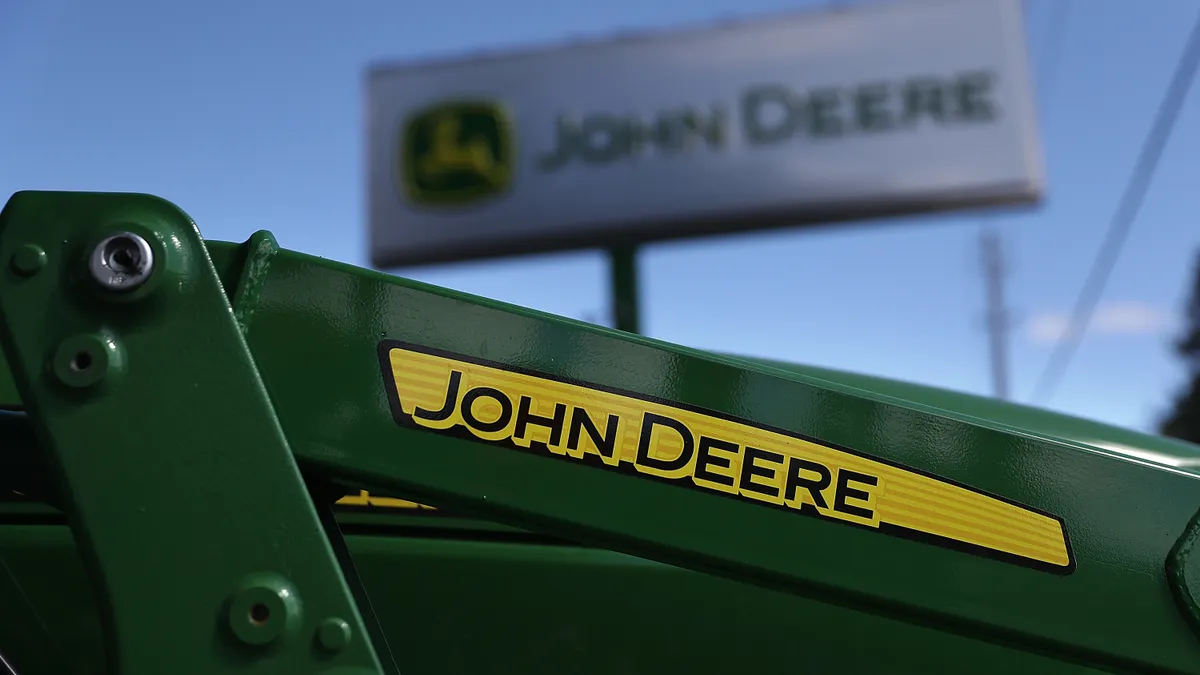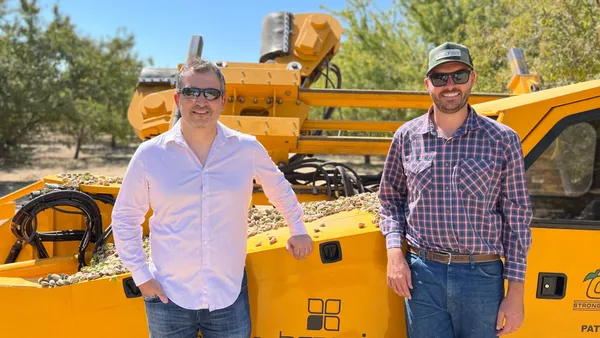Dive Brief:
-
Deere & Co. is reducing its salaried global workforce as tractor sales weaken through a difficult farm economy, adding to a series of recent layoffs across the company.
-
Increased operational costs and demand declines have “unfortunately forced us to make tough decisions,” a Deere spokesperson told Agriculture Dive in an email Thursday. The company confirmed salaried workforce reductions were taking place, but did not disclose exact numbers or estimates.
-
The cuts add to a massive downsizing affecting more than 1,800 workers across the tractor giant’s Midwest factories and offices this year. Additionally, Deere on Wednesday notified Iowa Workforce Development that 103 workers — 34 in Dubuque and 69 in Waterloo — would be let go immediately.
Dive Insight:
With farmer incomes declining at record levels, agricultural equipment makers are struggling to sell tractors and combines, pressuring Deere and peers to slow production and cut costs where possible.
"This reduction in product demand and increased operational costs have unfortunately forced us to make tough decisions including layoffs at John Deere production facilities and reductions in our global salaried workforce," a spokesperson said in a statement.
Salaried workers affected by Deere’s layoffs will receive severance pay, access to health and wellness benefits, paid-out vacation and time off, as well as compensation benefits.
Employees were asked to work from home this week and postpone any business travel ahead of Wednesday’s layoff meeting, according to a company-wide letter shared on Reddit. Several of the site’s users said some employees were let go after 20-plus years of service.
“While the decision to reduce roles across the company was a challenging one, the company is confident that these adjustments, coupled with our ongoing efforts to reduce costs and align production and inventory levels, will position John Deere strongly for the future," the spokesperson said.
The changes come after a robust five years of sales for tractor makers, however, with economic pressures building, Deere and others are expecting demand to continue tanking.
In June, two-wheel tractor sales fell more than 16% over last year, with combine harvester sales dropping more than 30%, according to the latest data from the Association of Equipment Manufacturers. Deere is expecting industry sales to decline 20% when the year is finished.
These challenging times “illustrate why the passage of a strong farm bill is so needed to lift rural America and our farmers and growers,” Curt Blades, AEM senior vice president, said in a statement.











